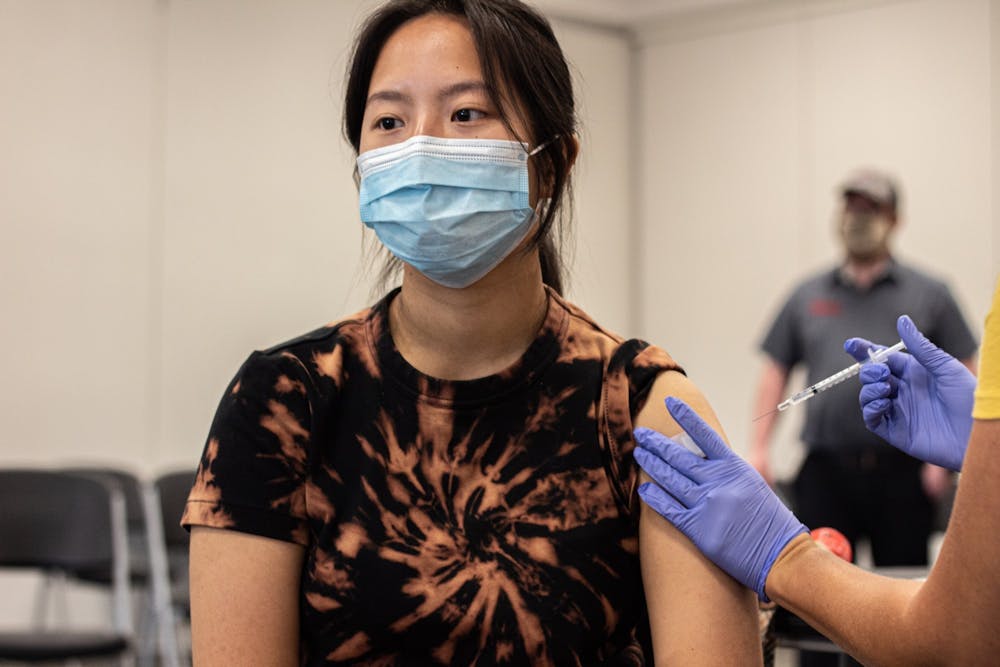U.S. Supreme Court Justice Amy Coney Barrett rejected eight IU students’ request to block the vaccine mandate Aug. 12. Professors at IU with knowledge of public health and law reacted to the decision and provided context on Barrett’s reasoning.
Those eight students sued IU in June and said the mandate violates their constitutional right to bodily autonomy.
Ross Silverman, IUPUI Richard M. Fairbanks School of Public Health professor of health policy and management and IUPUI Robert H. McKinney School of Law professor, said this decision means Barrett believed the mandate was reasonable.
Silverman said the right to bodily autonomy doesn’t exempt the student from any vaccination requirement coming from the university.
“Indiana University has the right to protect its community from infectious diseases,” he said. “You have no constitutional right to make a choice to not be protected against infectious disease, and then also say I have the right to go to your university.”
With Barrett’s refusal to block the mandate, the COVID-19 vaccine is still required for all students, staff and faculty, unless they have a medical, religious or ethical exemption or are enrolled in a 100% online program, according to IU's COVID-19 website.
IU no longer requires proof of vaccination after Indiana Attorney General Todd Rokita said the reporting requirement violated state law in a non-binding opinion. However, IU created an incentive program encouraging students to upload documentation of their vaccination for various prizes.
Both the U.S. District Court for the Northern District of Indiana and the 7th Circuit Court of Appeals sided with IU, arguing it was reasonable for the university to do what is necessary to keep its students and faculty safe during the COVID-19 pandemic.
In this case, Silverman said the federal courts were aware their decision had to balance both individual and public rights, and the dominant interest was protecting the community at large due to the ever changing nature of the pandemic.
“That's one of the things that I think they're also taking into account here is this is an emergency,” he said. “When the students filed the case earlier this summer, COVID looked very different than it does now.”
Silverman said COVID-19 is good at finding the cracks in the system, such as unvaccinated people and children, and exploiting them.
Daily cases of COVID-19 infections are resurging due to the delta variant becoming the dominant strain in Indiana, according to IndyStar. The variant is two times as contagious compared to previous variants adding to the urgency to increase COVID-19 vaccination rates throughout the country, according to the Centers for Disease Control and Prevention.
The CDC previously stated the vaccines are safe and can effectively curb the spread of the pandemic. Dr. Aaron Carroll, IU’s chief health officer, has also recommended and promoted the vaccine in multiple Ask Aaron webinars.
For as long as he can remember, Nir Menachemi, department of health policy and management chair at the IUPUI Fairbanks School of Public Health, said vaccines have been common in educational institutions like universities.
Menachemi said vaccines have contributed to advances in life expectancy. He said he supports the university’s right to guard the health of its people through this lawsuit.
“The science underpinning the vaccine is irrefutable,” Menachemi said. “IU has always expected students to be vaccinated.”




